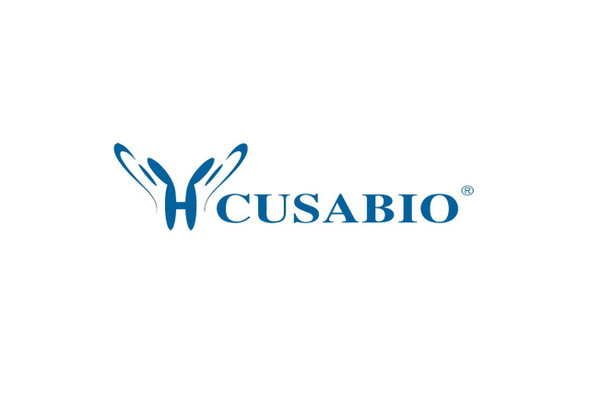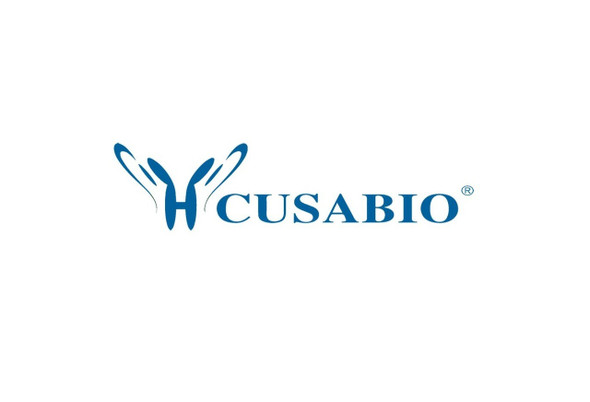Cusabio Mouse Recombinants
Recombinant Mouse Tenascin (Tnc), partial | CSB-MP768917MO
- SKU:
- CSB-MP768917MO
- Availability:
- 3 - 7 Working Days
Description
Recombinant Mouse Tenascin (Tnc), partial | CSB-MP768917MO | Cusabio
Alternative Name(s): Hexabrachion Tenascin-C Short name: TN-C Hxb
Gene Names: Tnc
Research Areas: Signal Transduction
Organism: Mus musculus (Mouse)
AA Sequence: GLLYPFPRDCSQAMLNGDTTSGLYTIYINGDKTQALEVYCDMTSDGGGWIVFLRRKNGREDFYRNWKAYAAGFGDRREEFWLGLDNLSKITAQGQYELRVDLQDHGESAYAVYDRFSVGDAKSRYKLKVEGYSGTAGDSMNYHNGRSFSTYDKDTDSAITNCALSYKGAFWYKNCHRVNLMGRYGDNNHSQGVNWFHWKGHEYSIQFAEMKLRPSN
Source: Mammalian cell
Tag Info: N-terminal 10xHis-tagged and C-terminal Myc-tagged
Expression Region: 1884-2099aa
Sequence Info: Partial
MW: 28.8 kDa
Purity: Greater than 85% as determined by SDS-PAGE.
Relevance: Extracellular matrix protein implicated in guidance of migrating neurons as well as axons during development, synaptic plasticity as well as neuronal regeneration. Promotes neurite outgrowth when provided to neurons in culture. May play a role in supporting the growth of epithelial tumors. Ligand for integrins ITGA8:ITGB1, ITGA9:ITGB1, ITGAV:ITGB3 and ITGAV:ITGB6. In tumors, stimulates angiogenesis by elongation, migration and sprouting of endothelial cells
Reference: "Murine tenascin-W: a novel mammalian tenascin expressed in kidney and at sites of bone and smooth muscle development." Scherberich A., Tucker R.P., Samandari E., Brown-Luedi M., Martin D., Chiquet-Ehrismann R. J. Cell Sci. 117:571-581(2004)
Storage: The shelf life is related to many factors, storage state, buffer ingredients, storage temperature and the stability of the protein itself. Generally, the shelf life of liquid form is 6 months at -20?/-80?. The shelf life of lyophilized form is 12 months at -20?/-80?.
Notes: Repeated freezing and thawing is not recommended. Store working aliquots at 4? for up to one week.
Function: Extracellular matrix protein implicated in guidance of migrating neurons as well as axons during development, synaptic plasticity as well as neuronal regeneration. Promotes neurite outgrowth when provided to neurons in culture. May play a role in supporting the growth of epithelial tumors. Ligand for integrins ITGA8
Involvement in disease:
Subcellular Location: Secreted, extracellular space, extracellular matrix
Protein Families: Tenascin family
Tissue Specificity: Expressed in kidney, aortic valve, corneal limbus, periosteum around the ribs, cerebellum, stomach and intestine (PubMed:14709716). High levels of isoform 2 in lung and brain of newborn mice. High levels of isoform 5 in thymus, moderate levels in brain of newborn and adult mice. Low level of isoform 2 in adult brain.
Paythway:
Form: Liquid or Lyophilized powder
Buffer: If the delivery form is liquid, the default storage buffer is Tris/PBS-based buffer, 5%-50% glycerol. If the delivery form is lyophilized powder, the buffer before lyophilization is Tris/PBS-based buffer, 6% Trehalose, pH 8.0.
Reconstitution: We recommend that this vial be briefly centrifuged prior to opening to bring the contents to the bottom. Please reconstitute protein in deionized sterile water to a concentration of 0.1-1.0 mg/mL.We recommend to add 5-50% of glycerol (final concentration) and aliquot for long-term storage at -20?/-80?. Our default final concentration of glycerol is 50%. Customers could use it as reference.
Uniprot ID: Q80YX1
HGNC Database Link: N/A
UniGene Database Link: UniGene
KEGG Database Link: KEGG
STRING Database Link: N/A
OMIM Database Link: N/A









